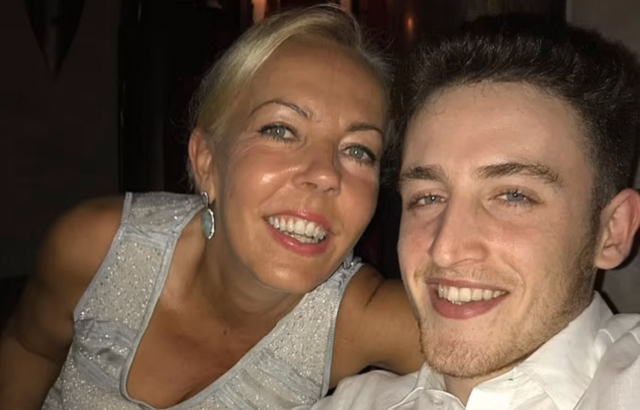
My son Toby was at the peak of his fitness when he died of SADS


“I walked through the hall and into his bedroom and I saw him lying on the floor next to his bed with a towel over his head. I knew immediately that something was wrong. I lifted up the towel – his lips were black. I’d never seen a dead body before, but I knew that my son was dead.”
Sam Richards lost her 22-year-old son Toby to sudden arrhythmic death syndrome, or SADS, which is when someone dies suddenly following a cardiac arrest and no obvious cause can be found. SADS affects around 500 people in the UK every year.
“Like many other families who have lost a loved one to SADS, I had absolutely no idea what this thing was – I had never heard of it before,” Sam says. “There were no warning signs at all.”
Toby was preparing to join the Royal Marines and was training hard to pass the fitness tests – he was doing press-ups and pull-ups, running and swimming. “I couldn’t understand what had happened to my beautiful, healthy, perfect boy, at the peak of his fitness. It was horrifying and surreal.”
What are we doing to tackle SADS?
If a case is reported as a SADS death, the victim’s family often has to go through a challenging process requiring numerous interactions with coroners, counsellors, doctors, pathologists, and the police – all while they are still navigating grief.
BHF-funded Professor Elijah Behr at St George’s, University of London is leading a pilot project that aims to provide a better experience for bereaved families. This study involves a new partnership between coroners, NHS specialists and other charities including CRY (Cardiac Risk in the Young) to understand the challenges that families face, and provide the support they need when they are most vulnerable. The pilot study is starting in January 2022, and will run for two years across England. Once the systematic processes are successfully developed, they will be rolled out to the rest of the country.
Professor Behr is also researching the genetic causes of SADS, specifically focusing on family studies to identify faulty (or mutated) genes that cause an inherited heart condition – these studies are important because they could identify other family members affected by SADS and protect them from another tragedy like Sam’s.
Do you want to hear more from Professor Elijah Behr and Sam Richards?

